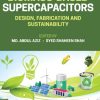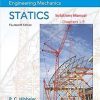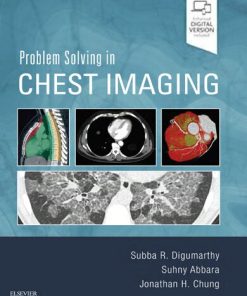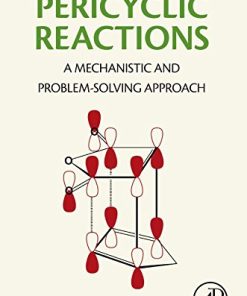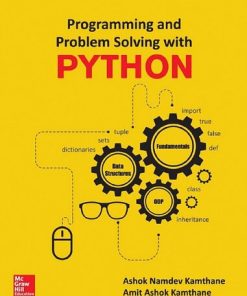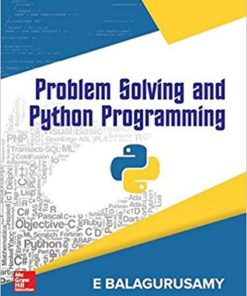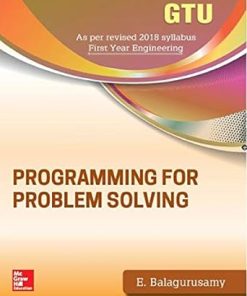(EBook PDF) Engineering Fundamentals and Problem Solving 8th Edition by Arvid Eide, Steven Mickelson, Cheryl L. Eide, Roland Jenison, Larry Northup 1264907524 9781264907526 full chapters
$50.00 Original price was: $50.00.$25.00Current price is: $25.00.
Engineering Fundamentals and Problem Solving 8th Edition by Arvid Eide, Steven Mickelson, Cheryl L. Eide, Roland Jenison, Larry Northup – Ebook PDF Instant Download/DeliveryISBN: 1264907524, 9781264907526
Full download Engineering Fundamentals and Problem Solving 8th Edition after payment
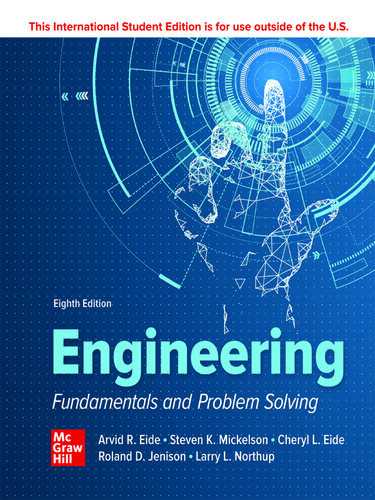
Product details:
ISBN-10 : 1264907524
ISBN-13 : 9781264907526
Author: Arvid Eide, Steven Mickelson, Cheryl L. Eide, Roland Jenison, Larry Northup
Engineering Fundamentals and Problem Solving presents a complete introduction to the engineering field and remains the most comprehensive textbook for an introductory engineering course. This text helps students develop the skills needed to solve open-ended problems in SI and customary units while presenting solutions in a logical manner. Students are introduced to subject areas, common to engineering disciplines, that require the application of fundamental engineering concepts.
Engineering Fundamentals and Problem Solving 8th Table of contents:
1 The Engineering Profession
1.1 An Engineering Career
1.2 The Technology Team
1.3 The Engineering Profession
1.4 The Engineering Functions
1.5 The Engineering Disciplines
1.6 Conclusion
2 Education for Engineering
2.1 Education for Engineering
2.2 The Engineer as a Professional
2.3 Conclusion
3 Introduction to Engineering Design
3.1 An Introduction to Engineering Design
3.2 The Design Process
3.3 Design and the Customer
3.4 The Nature of Engineering Design
3.5 Experiencing the Design Process in Education
3.6 Design Opportunities and Challenges of the Future
4 Engineering Solutions
4.1 Introduction
4.2 Problem Analysis
4.3 The Engineering Method
4.4 Problem Presentation
4.5 Standards of Problem Presentation
5 Representation of Technical Information
5.1 Introduction
5.2 Collecting and Recording Data
5.3 General Graphing Procedures
5.4 Empirical Functions
5.5 Curve Fitting
5.6 Method of Selected Points and Least Squares
5.7 Empirical Equations: Linear
5.8 Empirical Equations: Power Curves
5.9 Empirical Equations: Exponential Curves
6 Engineering Measurements and Estimations
6.1 Introduction
6.2 Measurements: Accuracy and Precision
6.3 Measurements: Significant Digits
6.4 Errors
6.5 Estimations
7 Dimensions, Units, and Conversions
7.1 Introduction
7.2 Progress in the United States toward Metrification
7.3 Physical Quantities
7.4 Dimensions
7.5 Units
7.6 SI Units and Symbols
7.7 Rules for Using SI Units
7.8 U.S. Customary and Engineering Systems
7.9 Conversion of Units
7.10 Celsius, Fahrenheit, and Absolute Scales
8 Introduction to Engineering Economics
8.1 Introduction
8.2 Simple and Compound Interest
8.3 Cash-Flow Diagram
8.4 Present Worth and Future Worth
8.5 Annual Worth and Gradients
8.6 Summary Table
9 Economics: Decision Making
9.1 Economic Decision Making
9.2 Depreciation and Taxes
10 Statistics
10.1 Introduction
10.2 Frequency Distribution
10.3 Measures of Central Tendency
10.4 Measures of Variation
10.5 Linear Regression
10.6 Coefficient of Correlation
11 Inferential Statistics and Decision Making
11.1 Inferential Statistics
11.2 Experimental Design
11.3 Sampling
11.4 Use of Various Distributions
11.5 Level of Significance and Confidence Intervals
12 Mechanics: Statics
12.1 Introduction
12.2 Scalars and Vectors
12.3 Forces
12.4 Types of Force Systems
12.5 Transmissibility
12.6 Resolution of Forces
12.7 Moments
12.8 Free-Body Diagrams
12.9 Equilibrium
13 Mechanics: Strength of Materials
13.1 Introduction
13.2 Stress
13.3 Strain
13.4 Modulus of Elasticity
13.5 Design Stress
13.6 Stress Concentration
14 Material Balance
14.1 Introduction
14.2 Conservation of Mass
14.3 Processes
14.4 A Systematic Approach
15 Energy Sources and Alternatives
15.1 Introduction
15.2 Fossil Fuels
15.3 Finite Supply of Fossil Fuels
15.4 Major Areas of Energy Consumption in the United States
15.5 Alternate Energy Sources
16 Fundamental Energy Principles
16.1 Introduction to Thermodynamics
16.2 Stored Energy
16.3 Energy in Transit
16.4 First Law of Thermodynamics: The Conservation of Energy
16.5 Second Law of Thermodynamics
16.6 Efficiency
16.7 Power
16.8 Refrigeration Cycles
17 Electrical Theory
17.1 Introduction
17.2 Structure of Electricity
17.3 Static Electricity
17.4 Electric Current
17.5 Electric Potential
17.6 Simple Electric Circuits
17.7 Resistance
17.8 DC Circuit Concepts
17.9 DC Electric Power
17.10 Terminal Voltage
17.11 Kirchhoff’s Laws
17.12 Mesh Currents
18 Flowcharts
18.1 Introduction
18.2 Flowcharting
People also search for Engineering Fundamentals and Problem Solving 8th:
engineering fundamentals and problem solving
engineering fundamentals and problem solving 8th edition
ise engineering fundamentals and problem solving
engineering fundamentals and problem solving 7th edition
engineering fundamentals and problem solving pdf free
Tags:
Engineering,Fundamentals,Problem Solving,Arvid Eide,Steven Mickelson,Cheryl L. Eide,Roland Jenison,Larry Northup
You may also like…
Uncategorized
Chemistry - Organic Chemistry
Pericyclic Reactions: A Mechanistic and Problem-Solving Approach 1st Edition
Computers - Programming
Business & Economics - Management & Leadership
Business Problem-Solving and Strategy: Manga for Success 1st Edition
Computers - Computer Science
Introduction To Computing And Problem Solving Using Python 1st Edition E. Balaguruswamy
Uncategorized


